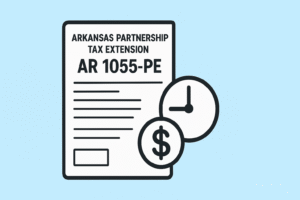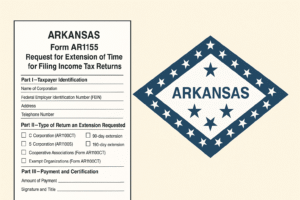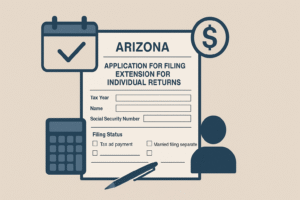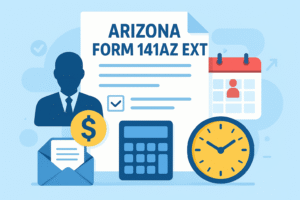In professional, academic, and nonprofit settings, the term honorarium frequently arises when organizations offer a token payment to individuals for their services. Unlike salaries or contractual payments, an honorarium is usually presented as a gesture of appreciation rather than as formal compensation. While seemingly straightforward, honorarium payments carry unique implications—especially when it comes to taxation, IRS reporting, and compliance.
This guide breaks down the concept of an honorarium, how it works, its tax treatment in the United States, and the rules for both domestic and foreign recipients.
What Is an Honorarium?
An honorarium is a payment given to an individual as a token of appreciation for services rendered voluntarily, where the person is not formally entitled to payment. Typically, honorariums are awarded for lectures, presentations, guest speaking, research contributions, advisory roles, or special participation in academic and nonprofit events.
Key characteristics of an honorarium:
- It is not a salary or wage.
- It is offered voluntarily as a gesture of thanks.
- The recipient often does not expect payment but may receive one.
- It is not tied to an employment contract or service agreement.
For instance, a university inviting a subject matter expert to deliver a guest lecture might offer them an honorarium in recognition of their time and knowledge.
Understanding the Mechanics of an Honorarium
While simple in concept, the mechanics of an honorarium can become complex due to its non-contractual nature and tax obligations. Here’s how it typically works:
- Engagement: An individual is invited to perform a service (e.g., speaking at a conference).
- Acknowledgment: The organization decides to recognize the contribution with a monetary token.
- Payment: The honorarium is paid as a lump sum (not hourly or periodic).
- Documentation: Depending on the recipient, the organization may need to issue a Form 1099-NEC (for U.S. persons) or Form 1042-S (for foreign nationals).
- Tax Withholding: Federal and state tax rules may require withholding, especially for nonresident aliens.
Thus, although labeled as a “gift,” in most cases, the IRS considers honorariums as taxable income.
Navigating Honorarium Tax Obligations
From a tax perspective, an honorarium is considered self-employment income or miscellaneous income.
- For U.S. citizens and residents:
- The payment is reportable and taxable.
- Typically, it is reported on Form 1099-MISC if $600 or more is paid by an organization.
- Even if less than $600, the recipient must still report it on their tax return.
- For nonresident aliens:
- Subject to 30% withholding tax unless exempt under a tax treaty.
- Reported on Form 1042-S by the payer.
Thus, organizations must treat honorarium payments carefully to avoid IRS penalties.
Reporting Honorarium to the Internal Revenue Service (IRS)
The IRS reporting rules depend on the recipient’s tax residency status:
- U.S. Persons (Citizens/Residents):
- Before payment, the payer should request the recipient to complete Form W-9 (Request for Taxpayer Identification Number and Certification).
- Reported on Form 1099-MISC.
- Recipients must include it in their Form 1040 under “Other Income” or as self-employment income if applicable.
- Nonresident Aliens:
- Reported on Form 1042-S.
- May require Form W-8BEN from the recipient to claim treaty benefits.
- Tax withholding of 30% applies unless reduced by treaty.
This ensures compliance with IRS regulations and prevents classification errors.
Treatment of an Honorarium as Employment Income
Although honorariums are not wages in the traditional sense, they can sometimes be treated as employment income depending on the circumstances:
- If the recipient is already an employee of the organization, the honorarium may be classified as additional wages and subject to payroll tax withholding.
- If the service resembles regular work duties rather than a one-time token, the IRS may reclassify it as employment compensation.
Employers should carefully review whether the payment truly qualifies as an honorarium or if it must be processed through payroll.
How to Award an Honorarium to a Foreign Individual
Paying an honorarium to a foreign national comes with additional rules:
- Immigration Status Check: Only certain visa types (such as B-1, B-2, WB, WT, J-1, H-1B with authorization) allow honorarium payments.
- Tax Withholding: Standard 30% federal tax applies unless a tax treaty exempts or reduces it.
- IRS Reporting: Must be reported on Form 1042-S.
- Documentation: The recipient typically provides a Form W-8BEN to certify foreign status and claim treaty benefits.
Failure to comply with these rules may result in penalties for both the payer and the recipient.
What Is the Scenario for an Honorarium to Be Paid?
Honorariums are usually paid in scenarios such as:
- Guest speakers at universities and conferences.
- Researchers or professionals offering consultations or evaluations.
- Clergy or spiritual leaders conducting ceremonies or services.
- Judges or panelists serving in competitions or academic evaluations.
- Experts providing occasional advisory services without formal contracts.
These situations share a common element: services are voluntary, irregular, and not tied to employment.
Examples of Honorarium Payments
Here are practical examples of when honorariums may be given:
- A university invites a Nobel laureate to speak at a lecture and pays a $5,000 honorarium.
- A nonprofit organization awards a $500 honorarium to a researcher for contributing to a study.
- A church provides a $300 honorarium to a guest pastor for leading a service.
- A medical association pays a $1,000 honorarium to a physician for delivering a keynote address.
Final Thoughts
An honorarium may appear to be a simple token of appreciation, but in practice, it carries important tax and compliance responsibilities. Whether paid to a local speaker or an international researcher, organizations must ensure that honorarium payments are properly documented and reported.For recipients, understanding that an honorarium is not a tax-free gift but rather taxable income is essential to staying compliant with the IRS.






